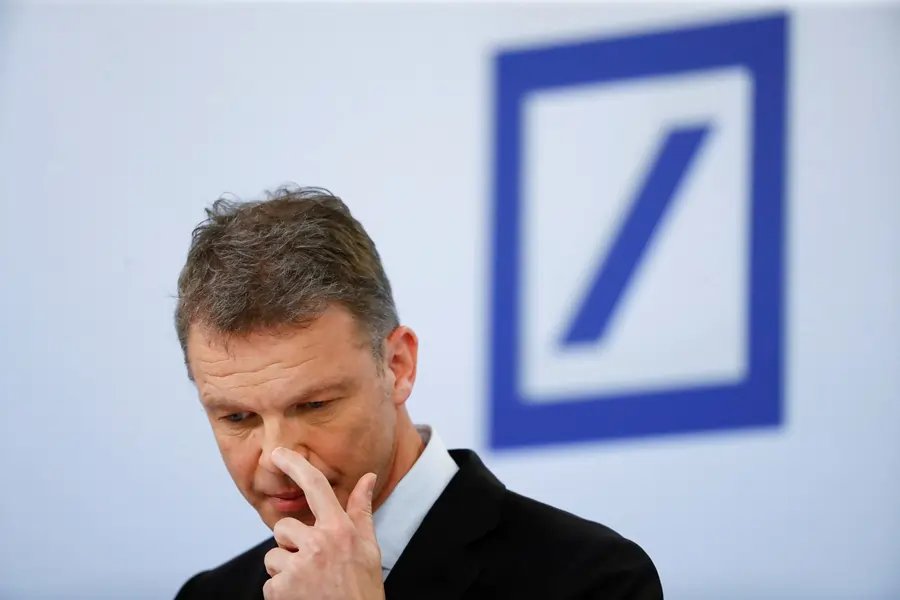Deutsche Bank CEO says German economy needs ‘urgent’ action
Published by Jessica Weisman-Pitts
Posted on December 4, 2024
3 min readLast updated: January 28, 2026

Published by Jessica Weisman-Pitts
Posted on December 4, 2024
3 min readLast updated: January 28, 2026

By Tommy Reggiori Wilkes
LONDON (Reuters) -Germany’s struggling economy needs urgent action to boost its competitiveness, Deutsche Bank’s CEO said on Wednesday as he called for structural reforms, less regulation and lower taxes on companies.
Germany needs to adjust its business model,” Christian Sewing told the FT Global Banking Summit in London. “It is urgent we take action,” he said, flagging the likelihood of further job losses in Germany’s auto industry and adding that February’s snap election could provide the opportunity for a reset.
The German economy has been dogged by intensifying competition from abroad, weak demand and an industrial slowdown. To boot, a budget row brought down the country’s three-way coalition last month, leaving Europe’s largest economy in political limbo until a snap election on Feb. 23.
The OECD on Wednesday cut its forecast for German economic growth next year.
Sewing, who has headed Deutsche Bank since 2018, said via video that the company would invest 2 billion euros ($2.1 billion) annually to increase automation as it tries to keep a lid on costs and improve its technology.
Deutsche’s 2010 acquisition of Postbank resulted in glitches that locked customers out of their accounts, and a long-running tech integration only concluded last year.
The Frankfurt-based lender has seen its shares gain 35% in 2024, outperforming a European banking index, after a run of quarterly profits and a rebound in its investment banking business.
But its stock remains below levels hit after the global financial crisis in 2008-2009, and the lender has forecast higher bad loan provisions as the domestic economy weakens.
Deutsche’s rival Commerzbank has been at the centre of speculation about a return of European banking consolidation after Italy’s UniCredit snapped up a stake, triggering widespread opposition in Germany to any hostile takeover.
Sewing said his lender was “staying out” of the Commerzbank-UniCredit situation and was focused solely on itself, given Deutsche had “only actually seen 60% to 65% of our potential”.
Banking consolidation in Europe was “a logical trend”, he said, but the lack of a banking union remained a hindrance to dealmaking.
“I do believe before the real wave starts we need further foundations met,” he said, adding it remained “very hard” for Deutsche Bank to shift liquidity from one country to another in Europe despite being in 14-15 markets.
Bankers have repeatedly called for euro zone-wide capital and deposit rules to replace national requirements.
($1 = 0.9529 euros)
(Reporting by Tommy Reggiori WilkesEditing by Sinead Cruise and Christina Fincher)
Corporate tax is a tax imposed on the income or profit of corporations. It is calculated based on the company's earnings and is typically a percentage of the profits.
Economic growth refers to the increase in the production of goods and services in an economy over a period of time, usually measured by GDP.
Banking consolidation is the process where banks merge or acquire other banks to increase efficiency, reduce competition, and expand their market presence.
A financial crisis is a situation in which the value of financial institutions or assets drops significantly, leading to a loss of confidence and economic instability.
Explore more articles in the Banking category











